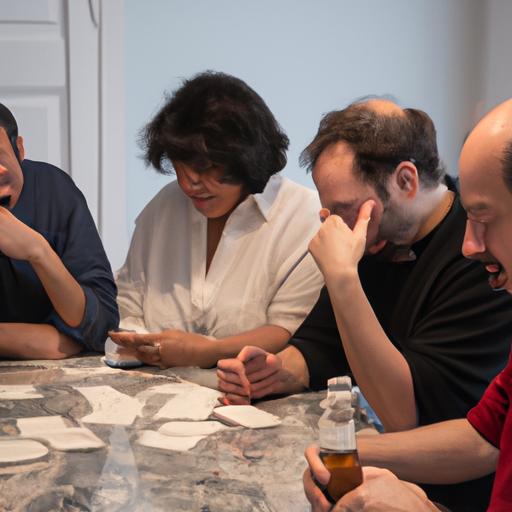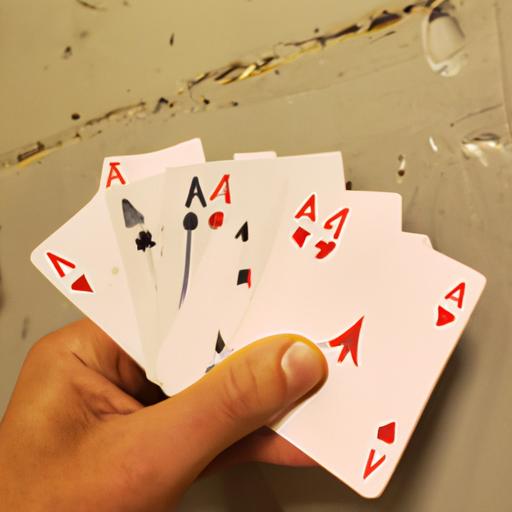Guide on How to Play Rummy: A Comprehensive Overview
Rummy is a classic card game that has been enjoyed by people for generations. It is a game that requires strategy, skill, and a bit of luck. Whether you are a beginner or an experienced player, understanding the rules and strategies of rummy can help you master the game and increase your chances of winning.
Knowing how to play rummy is essential for anyone who loves card games. It is a game that can be played with friends and family, or with strangers online. The game is easy to learn, and once you have mastered the rules, you can enjoy hours of fun and excitement.
In this guide, we will provide you with a comprehensive overview of the game of rummy. We will cover everything from the rules of the game to the different types of rummy games you can play. We will also share some strategies to help you master the game and etiquette tips to ensure you play the game with respect and sportsmanship. So, let’s dive in and learn how to play rummy!
Rules of the Game

Objective of the Game
The objective of rummy is to be the first player to get rid of all the cards in your hand by forming melds and discarding cards. A meld is a set of three or more cards of the same rank, or a sequence of three or more cards of the same suit in consecutive order. The game ends when a player has no cards left in their hand, or when the deck runs out of cards.
Number of Players Required
Rummy can be played with two to six players. When playing with two players, each player is dealt ten cards. When playing with three or more players, each player is dealt seven cards.
Card Deck Used
The standard deck of 52 cards is used in rummy. Jokers are also included and can be used as wildcards, meaning they can be used to represent any card needed to complete a meld.
How to Deal Cards
To begin the game, a dealer is chosen at random. The dealer shuffles the deck and deals each player the appropriate number of cards. The remaining cards are placed face down in the center of the table to form the stockpile. The top card of the stockpile is turned over to start the discard pile.
How to Make Melds
To make a meld, a player must have three or more cards of the same rank or a sequence of three or more cards of the same suit in consecutive order. Aces can be used as either high or low in a sequence, but not both at the same time. Players can also add to existing melds on the table.
How to Discard Cards
At the end of each turn, a player must discard one card face up on the discard pile. This card can be any card from their hand, but it cannot be a card that completes a meld.
How to Declare a Win
If a player has no cards left in their hand or if they have formed all their cards into melds, they can declare a win. The player must lay their melds on the table and discard their final card face down on the discard pile. If the final card completes a meld, the player must show the meld before discarding the card. The other players then have one final turn to try and improve their hand before the game ends.
Types of Rummy Games

Rummy is a broad term that refers to a group of card games that share similar gameplay and rules. While the objective of the game remains the same, there are many variations of rummy that you can play. Here are some of the most popular types of rummy games:
Gin Rummy
Gin Rummy is a two-player game that is played with a standard deck of 52 cards. The game involves making sets and runs of cards, and the first player to reach 100 points wins.
Indian Rummy
Indian Rummy, also known as Paplu, is a popular game in India that is played with two to six players. The game involves making sets and runs of cards, and the first player to get rid of all their cards wins.
Canasta
Canasta is a game that is played with two to six players and two decks of cards. The game involves making melds of cards and the first player to reach 5000 points wins.
Contract Rummy
Contract Rummy is a game that is played with three to eight players and involves making sets and runs of cards. The game is played with seven contracts, each with its own set of rules.
500 Rummy
500 Rummy is a game that is played with two to eight players and involves making sets and runs of cards. The game is played with a total of 500 points, and the first player to reach this point wins.
Each type of rummy game has its own unique rules and strategies. Learning how to play each type of rummy game can help you become a versatile player and increase your chances of winning.
Strategies to Master the Game
Rummy is a game of strategy and skill. To become a master at the game, you need to understand the importance of discarding, knowing when to meld, keeping track of your opponent’s moves, and knowing when to go for Gin.
Understanding the Importance of Discarding
Discarding is a crucial part of the game of rummy. It is important to discard cards that are not useful to you and to keep an eye on the cards your opponents are discarding. This can give you an idea of what cards you need to hold onto and what cards you can safely discard.
Knowing When to Meld
Melding is when you group cards together to form sets and sequences. It is important to know when to meld and when to hold onto your cards. Melding too early can give away your hand, while holding onto your cards for too long can make it difficult to form sets and sequences.
Keeping Track of Opponent’s Moves
Keeping track of your opponent’s moves is crucial to winning at rummy. You should pay attention to the cards they are discarding and the cards they are picking up from the discard pile. This can give you an idea of what cards they are holding and what cards you need to hold onto.
Knowing When to Go for Gin
Going for Gin means that you are trying to win the game in one turn by melding all of your cards. It is important to know when to go for Gin and when to hold onto your cards. Going for Gin too early can be risky, while waiting too long can make it difficult to win the game.
By understanding the importance of discarding, knowing when to meld, keeping track of your opponent’s moves, and knowing when to go for Gin, you can improve your chances of winning at rummy. So, the next time you sit down to play, keep these strategies in mind and see if you can come out on top!
Etiquette in Playing Rummy
Playing rummy is not just about winning, but also about playing the game with respect and sportsmanship. Following proper etiquette while playing rummy can make the game more enjoyable for everyone involved. Here are some key etiquette tips to keep in mind while playing:
Shuffling and Dealing Cards
When it comes to shuffling and dealing cards, it is important to ensure that the cards are shuffled thoroughly and dealt fairly. The dealer should shuffle the deck at least three times to ensure that the cards are randomized. Once the deck is shuffled, the dealer should deal the cards one at a time, starting with the player to their left. The dealer should also ensure that each player receives the correct number of cards.
Taking Turns
Taking turns is an essential part of playing rummy. It is important to wait for your turn to play and not interrupt other players while they are taking their turn. You should also avoid taking too much time to make your move, as this can slow down the game and frustrate other players.
Avoiding Distractions
When playing rummy, it is important to avoid distractions that can disrupt the game. This includes avoiding the use of electronic devices, such as smartphones and tablets, during the game. You should also avoid engaging in other activities, such as eating or drinking, while playing rummy.
Respecting Opponents
Lastly, it is important to respect your opponents while playing rummy. This includes avoiding rude or disrespectful behavior, such as gloating or trash-talking. You should also avoid touching other players’ cards or interfering with the game in any way. Remember, rummy is a game that is meant to be enjoyed by all players, so it is important to treat your opponents with kindness and respect.
Conclusion
In conclusion, learning how to play rummy is a great way to spend time with family and friends while also challenging yourself intellectually. The game requires a combination of strategy, skill, and a bit of luck, making it an exciting and engaging experience.
In this guide, we have covered the rules of the game, the different types of rummy games you can play, and some strategies to help you master the game. We have also shared some etiquette tips to help you play the game with respect and sportsmanship.
Remember, practice makes perfect when it comes to rummy. The more you play, the better you will become. So, gather your friends and family and start playing today!